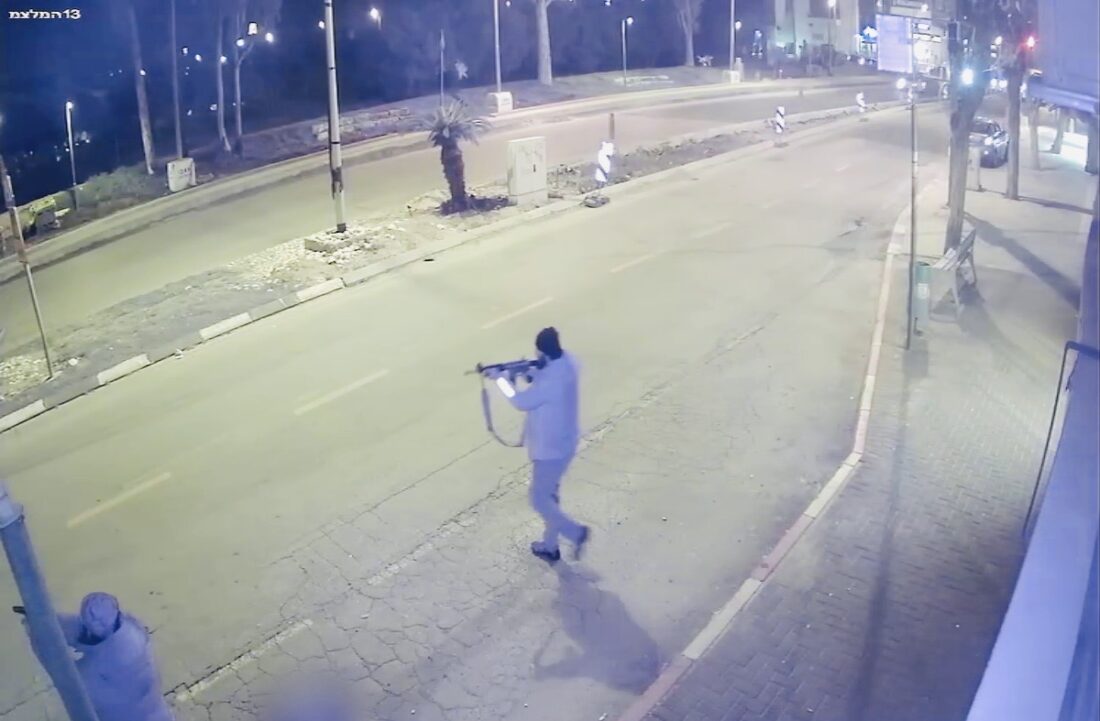A fresh wave of deadly terrorist attacks have washed over Israel this month, in the most serious outbreak of terrorism in more than a decade.
Several of the perpetrators have been Arab citizens of Israel, in what should be seen as a worrisome sign of their dissatisfaction with their lot in Israeli society. The other attackers have been Palestinians.
The attacks have been praised by Hamas, which has governed the Gaza Strip since 2006, and by its sister organization, Islamic Jihad, both of which have fought Israel in four border wars since 2008.
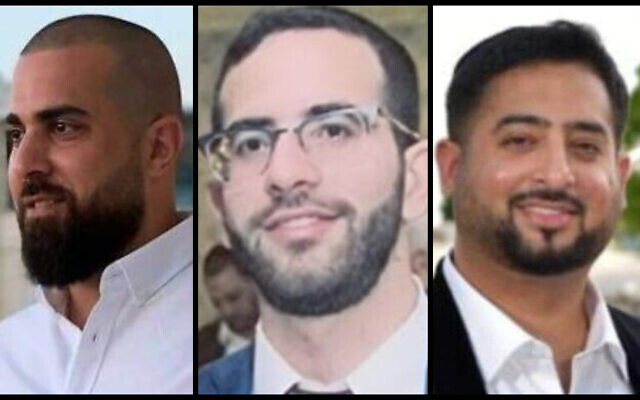
On March 29, a Palestinian Arab from the West Bank, Diaa Harmarsheh, fatally shot three Israelis and two Ukrainian foreign workers in Bnei Brak, an ultra-orthodox enclave near Tel Aviv. Hamarsheh was killed by police.
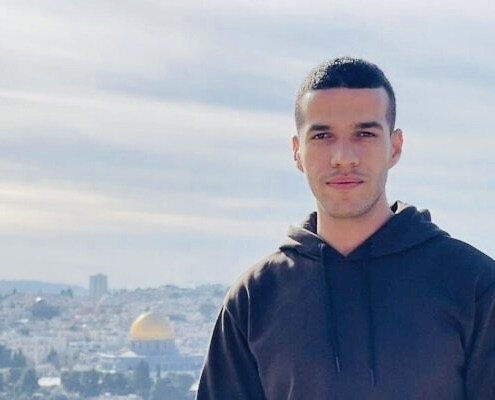
He launched his assault on the eve of Land Day, an annual event in the Arab community which commemorates the deaths of six Israeli Arabs who were shot by police during demonstrations in 1976 protesting land expropriations by the Israeli government.
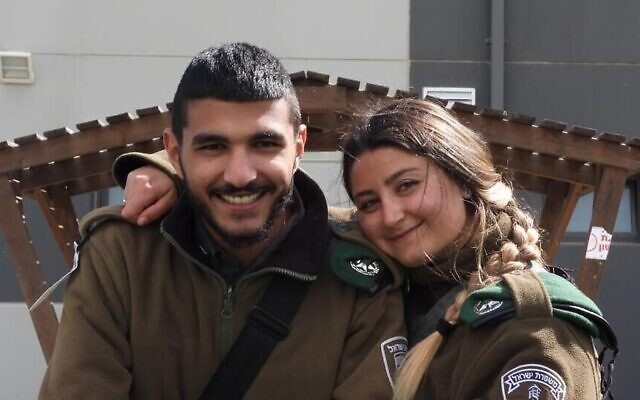
On March 28, two heavily-armed Israeli Arab cousins from the Arab city of Umm al-Fahm, Ayman and Ibrahim Ighbariah, killed two Border Police officers and injured several civilians in Hadera. They, too, were shot by security forces. Police found 1,100 bullets, three pistols and six knives on or near their bodies.
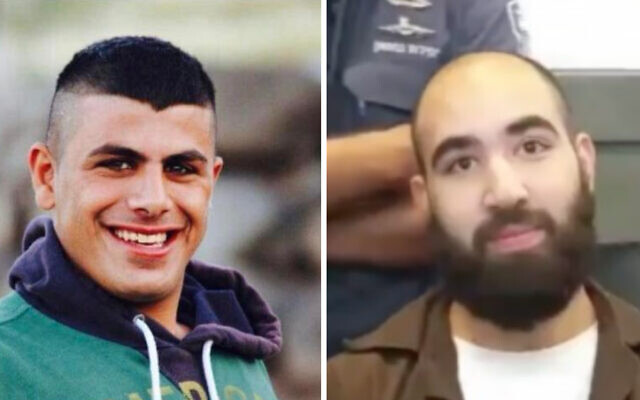
The Ighbariahs had criminal records. Ayman was arrested by the Shin Bet internal intelligence agency in 2017 for illegal arms possession. Ibrahim was detained by Turkish police in 2016 after trying to join the Islamic State. He was extradited to Israel, where he served a year-and-a-half in jail for membership in that organization.

On March 22, Mohammed Ghaleb al-Qi’an, an Israeli Bedouin from the town of Hura, fatally stabbed four Israeli men and women outside a shopping center in Beersheba before being killed by a bus driver. A former elementary school teacher, he was sentenced to four years in prison in 2016 after being convicted of recruiting members for Islamic State.
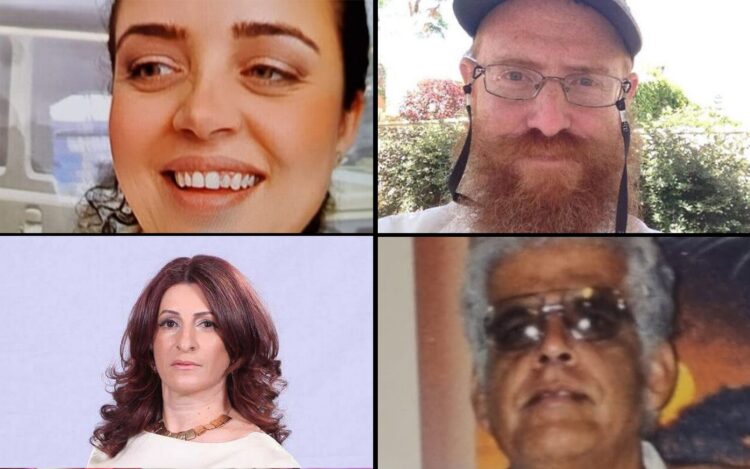
Islamic State established a caliphate in Syria and Iraq in 2014. It was decimated by Iraqi, Syrian, Kurdish, Turkish, U.S. and Russian forces in separate operations. Islamic State was not destroyed and continues to attract acolytes in the Arab world as well as in Israel.
Apart from the terrorist incidents in Hadera, Beersheba and Bnei Brak, there have been a series of stabbings in the West Bank and in Jerusalem since the start of March. All the perpetrators have been Palestinians.
Two Israelis were moderately injured in the village of Hizmeh, near Ramallah, on March 2. Four days later, a police officer was stabbed in Jerusalem’s Old City. He suffered minor injuries. On March 9, two police officers were wounded in a stabbing incident in eastern Jerusalem. And on March 19, an Israeli was stabbed in East Jerusalem.
It is far from certain whether the attackers were opportunistic “lone wolves” acting on their own, or whether they were recruited by various Palestinian groups.
Whatever the case may be, Israeli Prime Minister Naftali Bennett has pledged to crack down on the random violence, knowing full well it could cost him his job if he fails to bring it under control.
In 1996, Shimon Peres, the then prime minister, was defeated by Benjamin Netanyahu in a general election following a spate of terrorism. Peres had been favored to win, but lost by the skin of his teeth due to a series of terrorist attacks.
Ehud Barak, the prime minister from 1999 to 2001, lost the premiership to Ariel Sharon for exactly the same reason. The second Palestinian uprising in 13 years erupted in East Jerusalem in September 2000 and spread to the West Bank and Israel. It would claim the lives of thousands of Palestinians and Israelis and spell finis to Barak’s government.
With Israeli Arabs and Palestinians having murdered 11 Israelis in the past week, the highest toll since 2006, Bennett is under immense pressure to stop the bloodletting.
In the wake of the Beersheba incident, opposition leader Benjamin Netanyahu urged the Israeli government to “restore order to the people of Beersheba and the south.”
He claimed that Bennett and his coalition partner, Foreign Minister Yair Lapid, have not responded to terrorism sufficiently well because they fear that Mansour Abbas will bolt from the government. Abbas is an Israeli Arab member of the Knesset whose Ra’am party has propped up Bennett’s coalition since its formation last June.
Miri Regev, a Likud Party parliamentarian and former cabinet minister, charged that the “murderous attack” in Beersheba was proof of “the weakness” of Bennett’s government and “its loss of control in the Negev.”
The current upsurge of terrorism is reminiscent of the so-called “Knife Intifada,” which broke out in 2015 and spilled into 2016. It claimed the lives of 30 Israelis and two U.S. citizens. During this period, 211 stabbings, 83 shootings and 42 car-rammings took place. In response, Israeli security forces killed more than 200 Palestinians.
This violent episode was nothing new. Israel has experienced waves of terrorism throughout its history.
Four hundred Israelis were killed by Palestinian fedayeen between 1951 to 1956. These attacks originated in the West Bank, then held by Jordan, and in the Gaza Strip, then occupied by Egypt. The Israeli army responded with retaliatory strikes that left the region on edge.
There was an upsurge of terrorism on the eve of the Six Day War, with many of the Palestinian incursions originating in Syria. Sporadic terrorism occurred in the 1970s and 1980s.
The first Palestinian uprising broke out in December 1987. It caused the deaths of 160 Israelis in shootings, stabbings and bombings. Over 1,000 Palestinians were killed in Israeli reprisals.
From 1993 to 2000, the era of the Oslo peace process, almost 300 Israelis were killed in shootings, stabbings and suicide bombings.
The second Palestinian intifada, which lasted from 2000 to 2005, was far bloodier and resulted in the deaths of some 1,100 Israelis and 3,000 Palestinians.
All told, 3,500 Israelis have been killed in terrorist attacks since the establishment of the state.
Since the latest attacks, thousands of Israeli troops have been deployed to border areas and the West Bank. It remains to be seen whether the reinforcements will deter terrorists. In general, they are ready to die for their cause.
In the meantime, Israeli Arab leaders, Palestinian Authority President Mahmoud Abbas and King Abdullah II of Jordan have all issued condemnations of terrorism.
